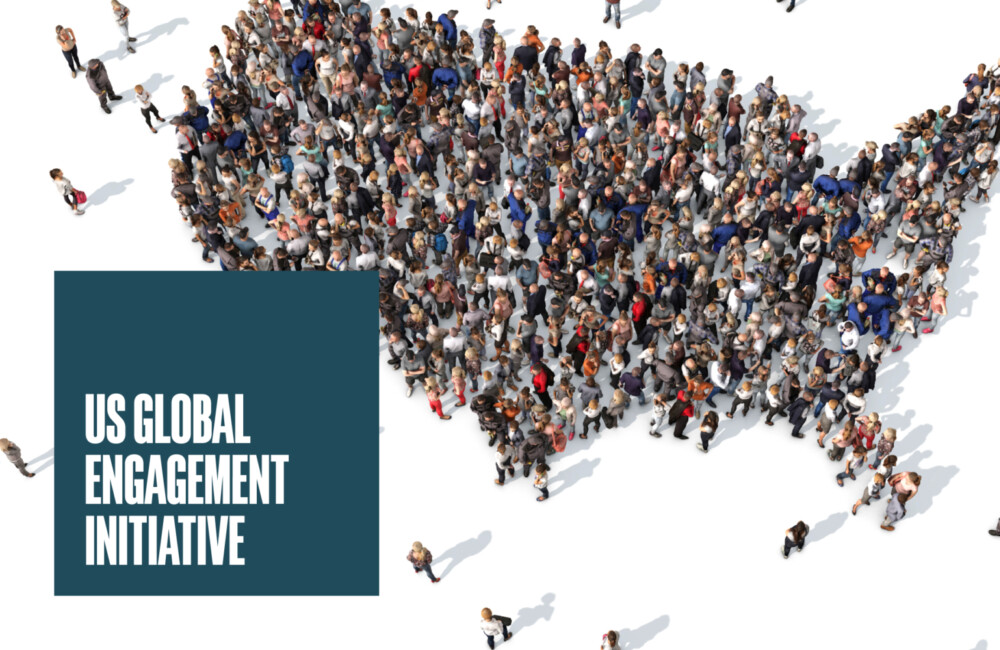Framing ethical perspectives
Multilateralism refers to a group of nations working together for a common goal. It is at the heart of international relations as nation-states form alliances with like-minded countries to take on global issues, such as climate, emerging technology, inequality, and collective security. Carnegie Council sees multilateralism as essential to generating solutions to global problems and a critical component of an ethical present and future.
Featured Multilateralism Resources
Inclusivity, AI & climate governance, and more
FEB 27, 2024 • Video
A Carnegie Council Conversation with the UK Home Secretary
MAR 28, 2024 • Video
Unlocking Cooperation: The Global South and Global North
In the inaugural panel of the "Unlocking Cooperation" series, Ramu Damodaran leads a discussion on forging a path forward for Global South/North collaboration.
OCT 18, 2023 • Video
Unlocking Cooperation: A Global Ethics Day Special Event
In this keynote event for Global Ethics Day 2023, Carnegie Council President Joel Rosenthal led a conversation on the psychology behind cooperation; ways that states, institutions, ...
Subscribe to the Carnegie Ethics Newsletter for more on ethics and international affairs
Related Initiatives
Model International Mobility Convention
The primary goal of the Model International Mobility Convention (MIMC) is to formulate new rules for migration and asylum that can benefit both migrants and refugees as well as their states of origin, transit, and destination.
Carnegie Ethics Accelerator
The Carnegie Ethics Accelerator is a new kind of incubator designed to empower ethics in the face of swiftly evolving challenges in technology and public policies.
Explore Our Multilateralism Resources

JUN 15, 2016 • Article
The Progressive's Paradox
Can left-wing ideologies ever co-exist comfortably with military intervention? U.S. foreign policy over the past two decades has failed to align squarely with the ...

JUN 14, 2016 • Podcast
The Invention of Russia: The Journey from Gorbachev's Freedom to Putin's War
When the Soviet Union fell 25 years ago, Gorbachev spoke of "living in a new world" where Russia would no longer interfere in other countries' affairs. ...

JUN 8, 2016 • Podcast
Ukraine Update
David Speedie discusses with Dr. Nicolai Petro the situation in Ukraine--political, economic, and the growing civil conflict between East and West--two years into the Poroshenko ...

MAY 26, 2016 • Podcast
Return to Cold War
Columbia's Robert Legvold argues that the United States and Russia are, indeed, in a new Cold War with plenty of blame for both sides. And ...
MAY 23, 2016 • Article
Obama at Hiroshima
The president's visit to Hiroshima to affirm his commitment to a world without nuclear weapons is no doubt a legacy-burnishing gesture, writes Rosenthal. "Yet there ...

MAY 20, 2016 • Podcast
Chuck Hagel on U.S. Challenges in Today's "Complicated, Interconnected World"
Drawing on decades of experience, Secretary Hagel gives a masterly and frank analysis of world events. He discusses current U.S. politics--he's confident that the ...

MAY 20, 2016 • Podcast
Threats and Opportunities on the Korean Peninsula
"Simply put, North Korea still needs to go a long way to achieve sophisticated levels of mid- to long-range nuclear missiles," declares Consul General Gheewan ...

MAY 13, 2016 • Podcast
A Rage for Order: The Middle East in Turmoil, from Tahrir Square to ISIS
In this memorable conversation, "New York Times" journalists Robert Worth and Roger Cohen discuss Worth's latest book about the Arab Spring and its aftermath. Was ...

MAY 12, 2016 • Article
The Fifth Annual Moscow Conference on International Security
David Speedie attended this important three-day conference and reports that "a global array of speakers articulated a corresponding range of country/area-specific concerns, much of ...

APR 19, 2016 • Podcast
Eurasianism and the European Far Right: Book Launch and Update on Events in Europe
"Eurasianism and the European Far Right" is the culmination of an intensive two-year project spearheaded by the Council's U.S. Global Engagement Program. This expert ...




